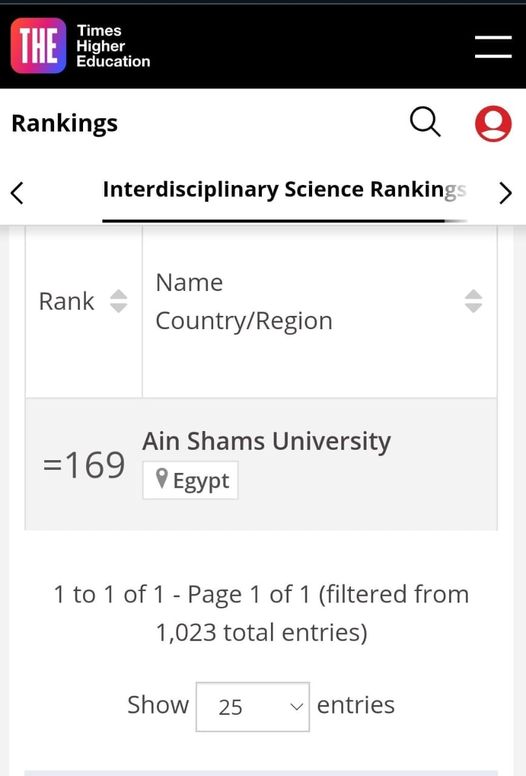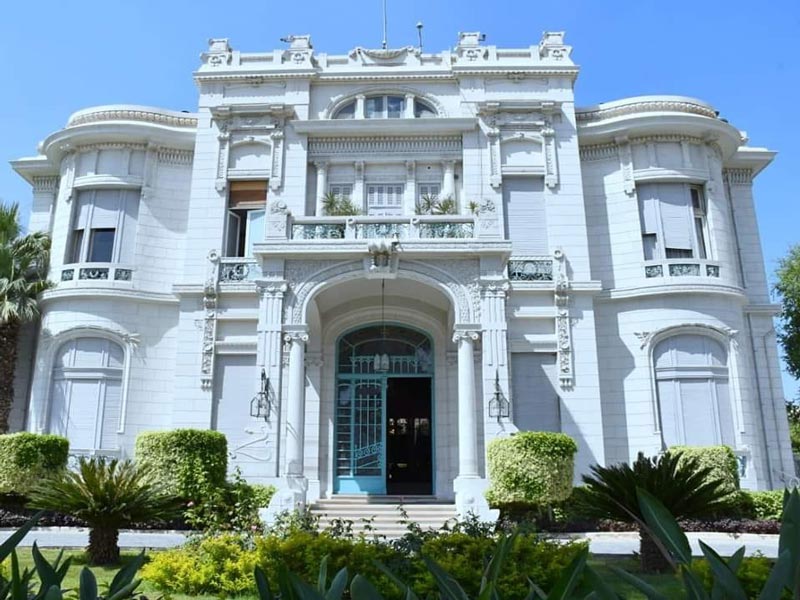Ain Shams University ranked 169th globally among the top 200 universities in the TIMES HIGHER EDUCATION INTERDISCIPLINARY Science ranking
Ain Shams University achieved the 169th place globally to be among the top 200 universities in the world in the TIMES HIGHER EDUCATION INTERDISCIPLINARY Science ranking in its first edition, under the patronage of Prof. Mohamed Diaa Zain El-Abedeen, President of the University, Prof. Ghada Farouk, Vice President of the University for Community Service and Environmental Development Affairs and Acting Vice President of the University for Graduate Studies and Research Affairs, and the supervision of Dr. Ahmed El-Banna, Director of the International Ranking Department at the University.
The ranking is based on an assessment of the university's performance in interdisciplinary disciplines in terms of high-quality scientific research published in prestigious scientific journals, the rate of citations, and funding from scientific research.
The first edition of the ranking included 749 universities from 92 countries, and the selection focused on the process of conducting research between disciplines (computer science, engineering, life sciences, and physical sciences), according to the Times Higher Education ranking of 11 diverse disciplines.
The classification results showed that the ISR classification methodology consists of three pillars, each of which represents a stage in the life cycle of research cooperation in joint projects and research. The pillars are divided into 11 indicators to measure different aspects of research integration between disciplines, namely: (inputs, weighing 19% of the total weight, process, weighing 16% of the total weight, and outputs, weighing 65% of the total weight).
‘Inputs’ measure the amount of research funding from research bodies and industry for interdisciplinary research; ‘Process’ measures infrastructure, indicators of success, internal support provided by universities and recognition of interdisciplinary advancement; and ‘Outputs’ measure research output in the above disciplines in terms of counts and citations, and measure the reputation of universities in conducting interdisciplinary science through the Times Higher Education survey.
Prof. Mohamed Diaa pointed out that the university's progress in ranking is due to its interest in scientific research policies and increasing its funding, in addition to cooperation with researchers from different countries around the world. The quality of joint research with the university also contributed to recording a large number of citations, thus enjoying a greater opportunity to publish in high-impact journals.
Prof. Ghada Farouk added that the Egyptian Knowledge Bank contributes to raising the ranking of universities, institutions and research centers internationally, by providing a huge amount of scientific resources necessary for researchers, Egyptian scientists and decision-makers; in order to enhance scientific research in Egypt, and enable research institutions to become known globally as a reference for scientific research.



.svg)

